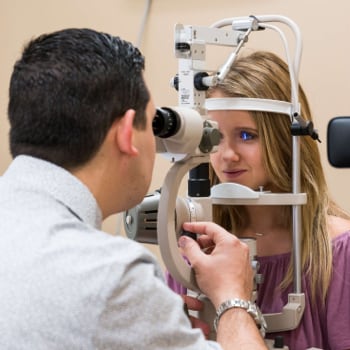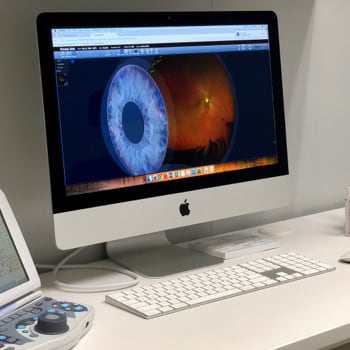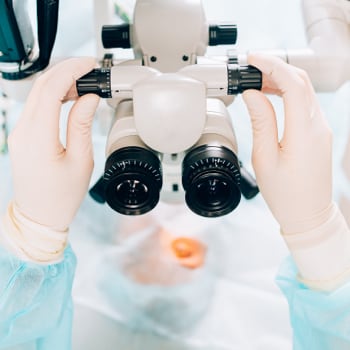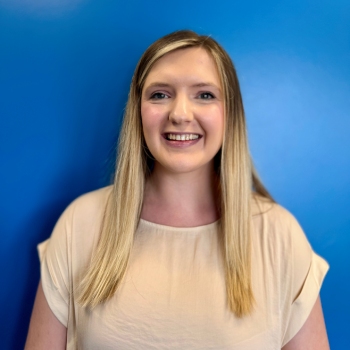What is LASIK, and can it fix myopia? LASIK (Laser-Assisted In Situ Keratomileusis) is a fairly straightforward refractive surgery that reshapes the cornea to correct common vision problems like myopia (nearsightedness). For many patients, LASIK offers an opportunity to reduce or eliminate their dependence on glasses or contact lenses, achieving clearer vision with convenience and confidence.
At Great Hills Eye Care, we’re here to help you understand your options and guide you on the path to better vision through comprehensive eye care.
What Is Myopia?
Myopia occurs when the eyeball is too long, or the cornea is too curved, causing light to focus in front of the retina instead of directly on it. This results in blurry vision for distant objects while close-up vision remains clear. Myopia can develop at any age but is often detected during childhood.
As screen time increases and outdoor activities decrease, myopia rates are rising worldwide. At Great Hills Eye Care, we provide thorough myopia management services to help slow the progression of nearsightedness in children. For adults, we offer solutions like corrective eyewear and laser surgery.
How Does LASIK Work?
LASIK uses laser technology to reshape the cornea, allowing light to focus correctly onto the retina. The procedure typically takes less than 30 minutes and involves minimal downtime. Patients often experience significant improvements in vision within a day or two.
The surgery is most effective for individuals with stable prescriptions and no underlying eye conditions that could impact healing. While LASIK is primarily used to treat myopia, it can also correct other refractive errors like hyperopia (farsightedness) and astigmatism.
Is LASIK Right for You?
Determining whether LASIK is right for you starts with a comprehensive eye exam. At Great Hills Eye Care, our optometrists will evaluate your eye health, prescription stability, and corneal thickness to ensure you’re a good candidate for the procedure.
Key Factors for LASIK Candidates:
- At least 18 years old with a stable prescription for at least one year
- Healthy eyes free from conditions like dry eye syndrome or keratoconus
- No significant health issues that could affect healing, such as diabetes or autoimmune disorders
Not everyone is a candidate for LASIK, but there are other options available, such as PRK (Photorefractive Keratectomy) or ICL (Implantable Collamer Lenses), which may be suitable alternatives.
The Benefits of LASIK
For many patients, LASIK offers life-changing benefits, including:
- Improved Vision: Most patients achieve 20/20 vision or better.
- Freedom from Glasses or Contacts: Enjoy activities like swimming, sports, and travel without the hassle of corrective lenses.
- Quick Recovery: Many patients return to normal activities within a day or two.
LASIK provides a level of convenience and freedom that enhances your quality of life. Whether you’re pursuing an active lifestyle or simply want to eliminate the need for corrective lenses, LASIK is a proven solution for many people.
At Great Hills Eye Care, we’re passionate about helping our patients explore the benefits of LASIK and make informed decisions about their vision.
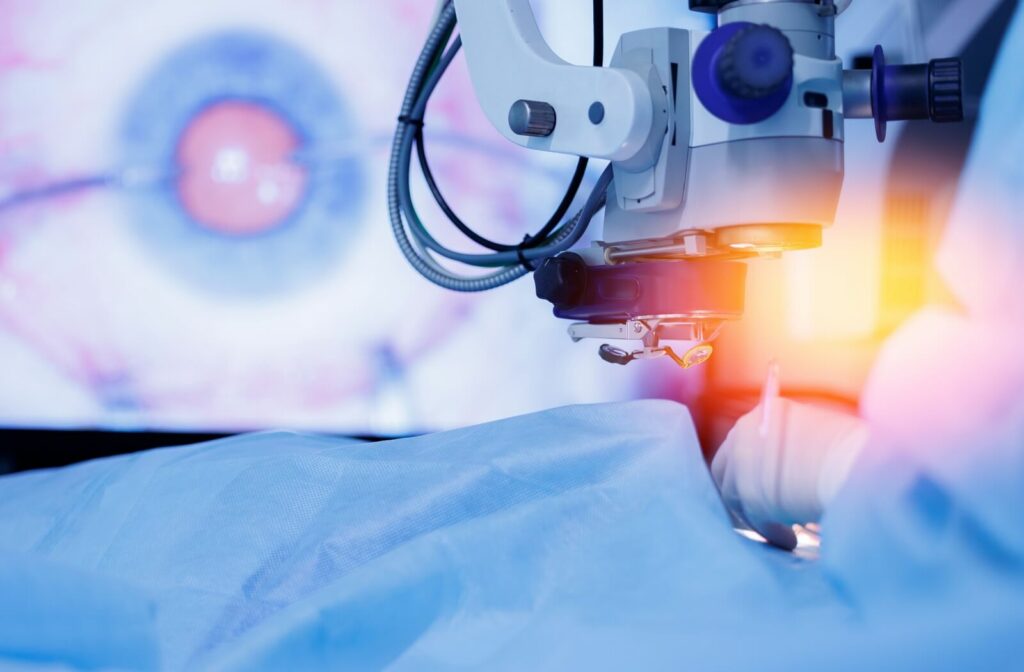
LASIK and Long-Term Eye Health
While LASIK can significantly improve vision, it’s not the end-all and be-all of eye health. Regular eye exams remain essential to monitor your eye health and address any changes in your vision over time.
What to Expect After LASIK:
- Temporary dryness or irritation is common but typically resolves within a few weeks.
- Long-term outcomes depend on factors like age and overall eye health.
At Great Hills Eye Care, we emphasize the importance of ongoing care to maintain your vision. Be sure to book annual eye exams to stay on top of your long-term eye health.
Common Myths About LASIK
There are many misconceptions about LASIK that may leave patients uncertain. Let’s address a few common myths:
Myth 1 – LASIK is Painful: LASIK is virtually painless. Numbing drops are used during the procedure, and most patients only experience mild discomfort during recovery.
Myth 2 – LASIK Is Risky: LASIK has a high success rate and has been safely performed on millions of patients worldwide. Complications are rare when the procedure is done by an experienced surgeon.
Myth 3 – LASIK Results Don’t Last: For most patients, LASIK provides long-lasting vision correction. However, age-related changes like presbyopia may still occur later in life.
At Great Hills Eye Care, we ensure that you’re fully informed about the procedure and its outcomes before moving forward.
Alternatives to LASIK
If LASIK isn’t right for you, don’t worry—there are other effective vision correction procedures available:
PRK (Photorefractive Keratectomy): Ideal for patients with thin corneas, PRK reshapes the cornea without creating a flap, offering similar results to LASIK.
ICL (Implantable Collamer Lenses): These lenses are surgically inserted into the eye, providing a reversible option for correcting vision.
Your optometrist will discuss these alternatives during your consultation to determine the best fit for your needs.
Book Your LASIK Consultation Today
If you’re ready to explore LASIK as a solution for myopia, schedule a consultation with Great Hills Eye Care today. With three convenient locations in the Austin metropolitan area—North Austin, Georgetown, and Pflugerville—Great Hills Eye Care makes it easy to prioritize your vision. Our experienced optometrists will guide you through the process and answer any questions.
Don’t let blurry vision hold you back. Take the first step toward a brighter future—book your appointment now and see the world in a whole new way!




